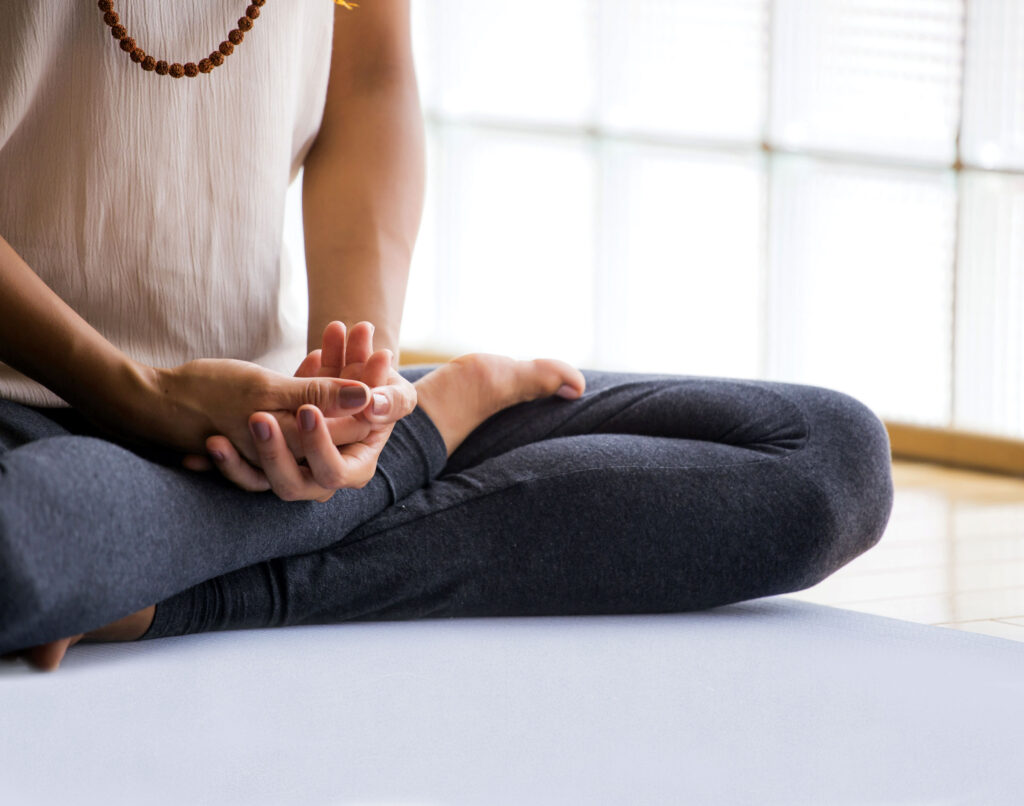Advertisement
Escape Into Mindfulness
Break away through meditation

Fortunately, vacations aren’t the only way to achieve the broadened perspective and recharged energy of a nourishing excursion. Incorporating a mindful meditation practice can provide a no-cost, daily way to “escape.”
I admit, I’ve had an off-and-on relationship with meditation. I’ve experienced its grounding, peace, and presentness, yet I’ve also found meditation difficult to prioritize and stick with. But each time I return to a consistent practice, I’m struck by its retreatlike stillness and calm.
For insight and inspiration, I interviewed three Toronto meditators:
- Jack Miller, Ontario Institute for Studies in Education professor and author of The Contemplative Practitioner (University of Toronto Press, 2014)
- Caroline Meyer, doctor of naturopathic medicine and reiki master
- Donald Eckler, Shambhala meditation instructor
I also learned from the writings and recordings of Jon Kabat-Zinn, professor of medicine and originator of the Mindfulness-Based Stress Reduction program taught worldwide to help ease pain, anxiety, and stress.
Advertisement
The meaning of meditation
There are many styles of meditation, including those that use mantras or visualization, each with its own history, techniques, and mentors. Several characteristics are shared across meditation types.
The most common elements of meditation include a space with minimal distractions, a specific comfortable position, a particular focus of attention, and an open attitude. Mindfulness is at the heart of all types of meditation practices.
Advertisement
Mindfulness through meditation
Kabat-Zinn describes mindful meditation as moment by moment, or breath by breath awareness. Meditation invites self-compassion and what Eckler calls “friendliness” toward ourselves. Eckler depicts meditation as “the act of relating to life directly, as it is,” without overthinking, theorizing, or judging.
Meditation, explains Meyer, can be practised in myriad ways, including “traditional breathing practices, mindful walking, chanting, and even through daily tasks like cleaning and cooking.” Most essential is to be “fully absorbed in what is happening in this very moment.”
Advertisement
Why meditate?
Quite simply, Miller says, “meditation relieves suffering. It can bring us to a place where we experience happiness and joy,” and does so by inviting us back to this breath—right here and now.
Mindful meditation can help us let go of past and future, reactions and planning, fretting and ruminating. Meyer describes how, when fully present, we’re able to “enjoy the pleasurable events in our lives more intensely, and able to weather the painful challenges that arise for all of us. In doing so, we become better parents, partners, workers, and friends.”
Advertisement
How to start?
Eckler, Meyer, and Miller each suggest beginning with a teacher or group. While apps and online resources can be helpful, all three highlight the benefits of in-person learning, especially at the start of cultivating a practice.
Eckler notes that someone new to meditating “is going to want to speak to a real person, someone they feel some trust in who can help them navigate the rocky terrain called life.”
Meyer advises clients to start small but consistently, even a few minutes a day, and then gradually extend the time.
And Miller suggests it’s ideal to “practise on a daily basis for at least six to eight weeks to start to experience the benefits.”
Advertisement
Benefits to health and wellness
Miller notes that “meditation reduces stress, the cause of many illnesses” and Meyer points to studies about the positive effects of mindfulness on “a range of medical concerns, including chronic pain, headaches, irritable bowel syndrome, insomnia, anxiety, depression, respiratory conditions, and even skin conditions.”
Recent research also indicates meditation may reduce high blood pressure, help with distress accompanying cancer diagnoses and treatments, and alleviate menopausal discomforts.
Advertisement
Meditation for all
Mindfulness is appropriate for all ages, from children to adults. “Like any great trip,” Meyer says, “meditation can transform your entire experience of life.”
 Tips for your meditation journey
Tips for your meditation journey
- Find a style of meditation or mindfulness practice that works for you.
- Locate a teacher to help as you begin.
- Practise consistently.
- Explore, escape, and enjoy!





